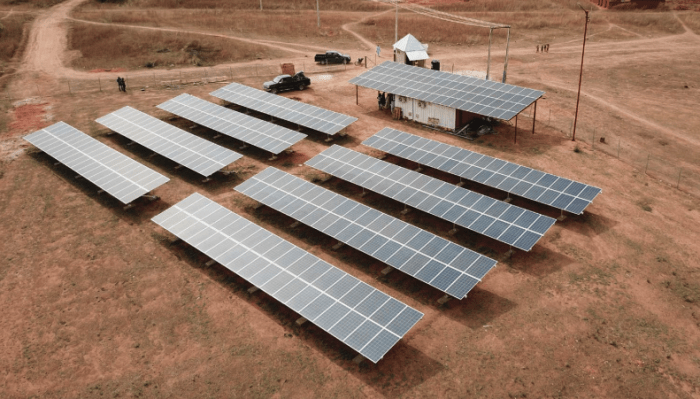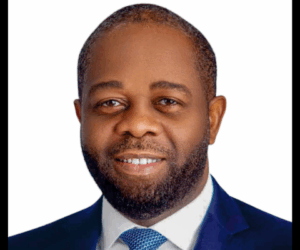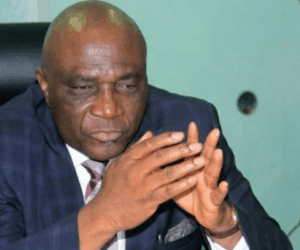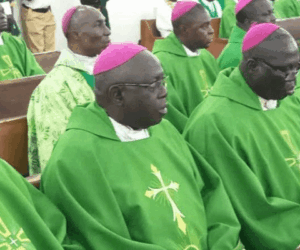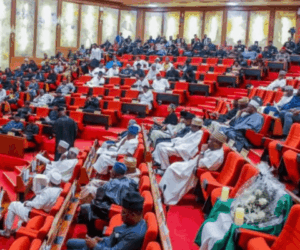Future Energies Africa (FEA), the core investor in Kano Electricity Distribution Company (KEDCO), has announced the commissioning of the first in a series of community-based mini-grids designed to transform electricity access across Jigawa State.
The project, developed through FEA’s renewable energy subsidiary Bagaja Renewables Limited, will see a newly completed 500kWp (1MW output capacity) solar-hybrid mini-grid in Kafin Hausa come on stream in the coming weeks, while ground will be broken for a second 1MW project in Hadejia.
The dual milestone events are scheduled for late August or early September 2025 and are expected to be led by Umar Namadi, executive governor of Jigawa State.
Officials said the Governor’s participation reflects Jigawa’s commitment to pioneering innovative energy solutions through a blend of public and private sector partnerships.
The projects are the first tangible results of the State Government’s strategic investment in KEDCO, a move that was anchored on a shared vision to expand electricity access, strengthen distribution infrastructure, and improve reliability for households and businesses.
As part of the agreement, FEA pledged to complement the State’s equity stake with direct deployment of renewable mini-grids across key communities, beginning with Kafin Hausa and Hadejia.
The Kafin Hausa facility, which is now completed and ready for commissioning, has been designed to provide a stable electricity supply to the township.
It comprises a 500kWp solar-hybrid generation plant integrated with a 350MVa backup diesel generator, a 3.5-kilometre 33kV distribution line, and robust supporting infrastructure, including 500kV step-up and step-down transformers.
Read also: Kano, Eko Discos lead with 100% market remittance
The network will channel electricity to existing distribution transformers strategically located at NEPA Office, Kofar Fada, Akarami, Bakin Kasuwa and Ashura, ensuring coverage across major residential and commercial clusters in the town.
When fully operational, the project is expected to deliver uninterrupted power to hundreds of households and businesses, significantly reducing reliance on petrol and diesel generators. Beyond improved reliability, residents are projected to benefit from lower energy costs and greater predictability in power supply.
For small and medium enterprises in particular, the steady availability of electricity could spur growth, expand job opportunities, and stimulate local commerce.
The groundbreaking of the Hadejia mini-grid, which is scheduled to coincide with the Kafin Hausa commissioning, marks the beginning of an ambitious rollout.
In total, FEA, KEDCO and Bagaja plan to deliver mini-grids with a combined capacity of 10MW across Jigawa. Target locations include Ringim, Kazaure, Dutse, Gumel, and other major towns. Each project is expected to be tailored to the unique demand and grid realities of its host community, with the long-term vision of ensuring that no major township in the state is left without dependable power.
Speaking on the development, Yusuf Yahaya, the managing director of Future Energies Africa praised the foresight of the Jigawa State Government in taking bold steps to secure its energy future.
“Jigawa State, under the leadership of His Excellency Malam Umar Namadi, has shown remarkable vision by investing directly in its energy future. These mini-grid projects are a direct outcome of that leadership. They will not only bring reliable electricity but also unlock new economic opportunities and improve quality of life for thousands of people. At FEA, together with KEDCO and Bagaja Renewables, we are proud to be delivering on this shared commitment,” he said.
The Governor’s anticipated presence at both the commissioning and groundbreaking will highlight Jigawa’s role as a trailblazer in adopting blended models of energy investment. By combining equity stakes in distribution companies with targeted mini-grid development, Jigawa has positioned itself as a national example of how subnational governments can accelerate access to power while fostering private sector participation.
Energy experts note that mini-grids have become increasingly central to Nigeria’s electrification drive, particularly in states where dispersed populations and inadequate legacy infrastructure make conventional grid expansion costly and slow. By adopting solar-hybrid systems that integrate renewable generation with backup capacity, developers are able to offer reliability and cost efficiency, two elements that are critical for public acceptance.
For Jigawa, where economic activities are rooted in agriculture, trade and small-scale industry, dependable energy supply is expected to be transformative. The State Government has repeatedly stressed that improved electricity will serve as a foundation for its broader development agenda, enabling agribusiness processing, stimulating digital services, and attracting investment into rural communities that were previously overlooked due to energy constraints.
KEDCO, which serves Kano, Katsina and Jigawa States, has undergone significant restructuring since FEA’s takeover as core investor. With Jigawa now playing an active role in shaping distribution priorities through its investment, the new partnership has set the stage for one of the most ambitious state-level electricity access programs in Nigeria.
The Head of Corporate Communication at Kano DisCo, Sani Bala Sani, described the mini-grid rollout as a turning point in how distribution companies and state governments can work together to achieve universal access.
“This is not just about generating electricity, it is about ensuring that power reaches the people who need it most, in a reliable and sustainable manner,” he said.
As anticipation builds for the late August and early September ceremonies, residents of Kafin Hausa and Hadejia are already expressing optimism. Traders in Kafin Hausa’s central market say stable power could reduce their operating costs, while schools and health facilities expect to improve service delivery with dependable electricity.
With commissioning set to take place within days and groundbreaking for the next phase to follow swiftly, Jigawa is on course to become a leading example of how public-private partnerships can unlock Nigeria’s long-elusive goal of reliable power for all.

